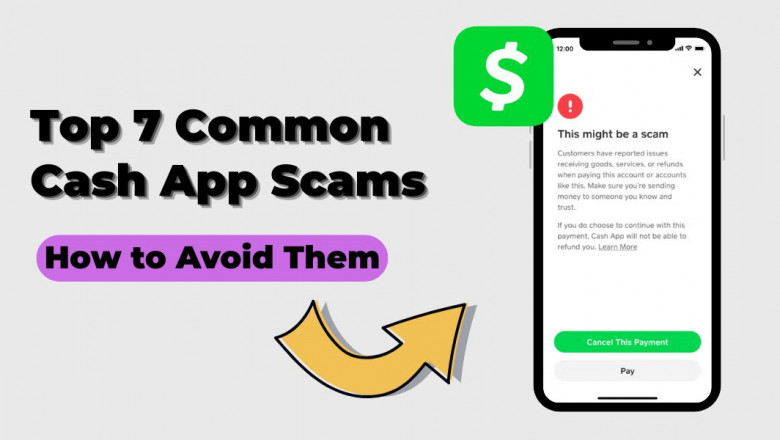views
Top 7 Common Cash App Scams and How to Avoid Them
Cash App has become one of the most popular peer-to-peer payment platforms, known for its speed and convenience. However, with this convenience comes risk, as scammers constantly look for new ways to exploit users. Understanding the most common types of scams on Cash App can help you avoid losing your hard-earned money. Below are the top 7 Cash App scams and strategies to steer clear of them.
1. Fake Cash App Customer Support Scams
One of the most widespread scams involves fake customer support representatives. Scammers pose as Cash App agents on social media or search engines and trick users into sharing personal information. They may request your login credentials, PIN, or even prompt you to send them money as a "verification" step.
Avoidance Tip:
Cash App never asks for personal information or money through social media. Always contact official support through the app.
2. Cash App Flip Scams
Cash flipping scams promise to turn a small amount of money into a larger payout. Scammers ask users to send them a set amount (like $10 or $50) and promise to "flip" it into more. Once the money is sent, the scammer disappears.
Avoidance Tip:
There is no legitimate way to double your money instantly through Cash App. If it sounds too good to be true, it probably is.
3. Fraudulent Payment Requests
Scammers can send fake payment requests and hope that you’ll accidentally approve them. Sometimes these come disguised as refunds, charitable donations, or transactions from fake companies.
Avoidance Tip:
Always verify who the payment request is from. If you're unsure, contact the sender outside of the app before approving any transactions.
4. Phishing Emails and Texts
Phishing messages are crafted to look like official Cash App communications. These texts or emails might claim your account has been compromised or offer a fake promotion, and include a link that leads to a fraudulent website.
Avoidance Tip:
Never click on suspicious links or enter login information on any site other than the official Cash App platform.
5. Scam Giveaways and Promotions
You might see posts claiming that Cash App is giving away thousands of dollars. These scams usually ask users to share a post, tag friends, and send a small payment to qualify.
Avoidance Tip:
Only participate in promotions officially posted by verified Cash App accounts. Most scams use unverified or impersonated profiles.
6. Fake Buyer/Seller Scams in Marketplaces
When selling items through online marketplaces, scammers may offer to pay through Cash App and then send fake payment confirmations. Once you ship the item, they vanish.
Avoidance Tip:
Wait until the funds appear in your Cash App balance before sending anything. Be cautious with unfamiliar buyers and sellers.
7. Account Takeover Scams
In this type of scam, cybercriminals gain access to your Cash App by stealing login credentials via phishing or malware. Once in, they can drain your funds or request payments from your contacts.
Avoidance Tip:
Enable two-factor authentication and use a strong, unique password. Monitor your account activity regularly to detect unauthorized access.
What to Do If You’re a Victim
If you’ve fallen victim to a scam, acting quickly is essential. You should report the transaction through the app and contact your bank if necessary. Additionally, you can follow this helpful guide on how to get money back on Cash App if scammed. It walks you through practical recovery steps and explains what to expect during the dispute process.
Final Thoughts
Cash App is a powerful tool when used responsibly, but staying alert is key to avoiding scams. Recognizing red flags, using official support channels, and being cautious with unknown requests can go a long way in keeping your account secure. Stay informed, share knowledge with friends and family, and always double-check before sending money.














Comments
0 comment